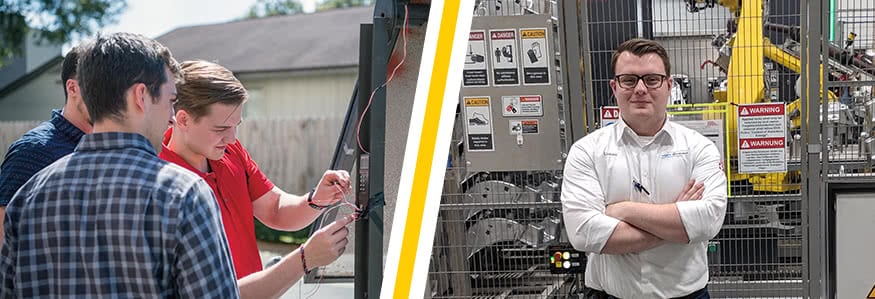
Across the states, engineers are testing unmanned systems for the Navy, developing tooling solutions and programs for Intel, and finalizing support systems at NASA’s Glenn Space Research Center. All these engineers are working to move their industries forward, and each graduated from Pensacola Christian College.

“What I enjoy most in this field are the vast array of options available,” said Daniel Miller (Engineering: Mechanical ’12), who works on power plant design and construction at Kiewit Engineering in Lenexa, Kansas. “Within the U.S., there are many engineering jobs within many different fields all over the country. Even within a single company, I have found that there are various roles that one can engage with. The engineering degree from PCC allows one to steer his career in a multitude of directions.”
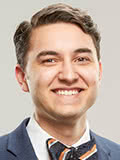
“The rigorous academic foundation taught me how to analyze mechanical and electrical systems so that I can approach any new industry armed with a wealth of solid fundamentals,” said Jonathan Fagan (Engineering: Mechanical ’12), an associate attorney with a law firm in Washington, D.C., who earned a law degree after earning an engineering degree from PCC. He handles cases involving patents, copyrights, trademarks, and trade secrets. “Any PCC engineering student learns to prepare. At the undergraduate level, we learned to prepare for exams and presentations. In my current role, I prepare for depositions and court. But I learned that success often depends on the student—or party—best prepared.”
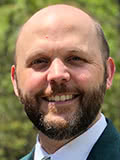
Outside academics, PCC’s focus on Christ helped these alumni learn what is most valued in the workplace. “PCC reinforced my father’s work ethic, gave me a safe haven to learn godly principles and practices for engineering, and helped me realize that living for Christ should be separated from worldliness,” said Jason Phipps (Mechanical Engineering ’00), who is responsible for HVAC, refrigerator and plumbing designs, and fire protection criteria at Page Interworks in Pennsylvania. “It was the Christian worldview that made all the difference. My previous school I attended was an excellent engineering school, but most of the engineering professors cared little for the students as they were there for their research.”
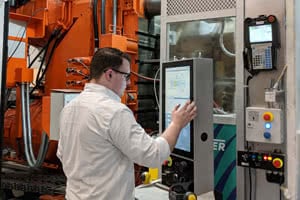
Lucas Haughey (Engineering: Mechanical ’17), manufacturing engineer for Linamar, a joint-venture company between two global automotive suppliers located in Asheville, North Carolina, works with facilities such as BMW, Volvo, and Ford. “The most valuable part of PCC’s training would have to be the strong focus on teams,” he said. “We have several instances in the engineering program where we worked on design teams to design and build things for classes including a drivable electric vehicle [during] junior year and various robots and machines during the engineering design competitions. This training has become exceptionally valuable in teaching teamwork and leadership as I both participate and lead various core teams to address manufacturing challenges.”
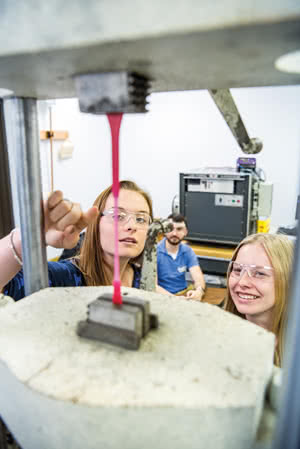
By starting off with high-level mathematics courses and studying direct application of physical sciences in their classes, engineering students are well-equipped for their fields. Although similar in their foundations, mechanical and electrical engineering offer different outcomes for students while both focus on fundamental scientific and mathematical laws. The mechanical engineering concentration, considered one of the broadest engineering disciplines, comprises designing, developing, and manufacturing engines, machines, and countless other mechanical devices and products. The electrical engineering concentration lays the foundation for students to design and control components found in myriads of products and inventions such as mobile devices, microwaves, engines, and antennas as well as entire power systems. Students apply lessons in engineering labs where they learn to harness, control, and direct nature’s forces to achieve and measure goals.
Alumni look back at their time at PCC and fondly remember those who helped them work through each class. “[Dr. Keith Francis] was always more concerned with understanding the concept rather than just solving the problem,” said Kendall Worthington (Engineering: Mechanical ’18), who oversees the security systems and sensors at Savannah River Nuclear Solutions. “His classes were the most challenging but at the same time balanced learning with opportunities to challenge myself for a deeper understanding of complex concepts, such as electromagnetic waves.”
PCC engineering graduates are finding where God intended to use their talents. “The field of engineering is vast and exciting, and even if you study one discipline at PCC, you can go into almost any in the work field,” Lucas said.
“I’ve got a master’s degree in engineering, did graduate work in engineering and math at three different graduate schools, and taught as an adjunct at two colleges. Nothing so far has compared to the quality of education I received in PCC’s engineering program.” —Josh Huber (Mechanical Engineering ’01) via Facebook